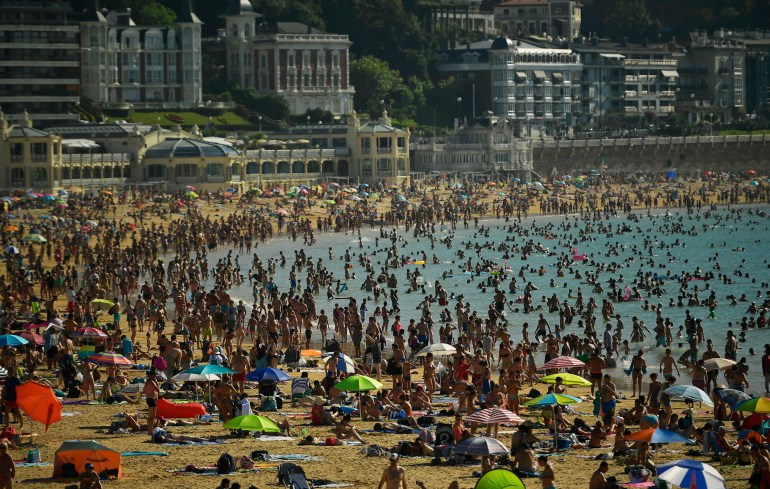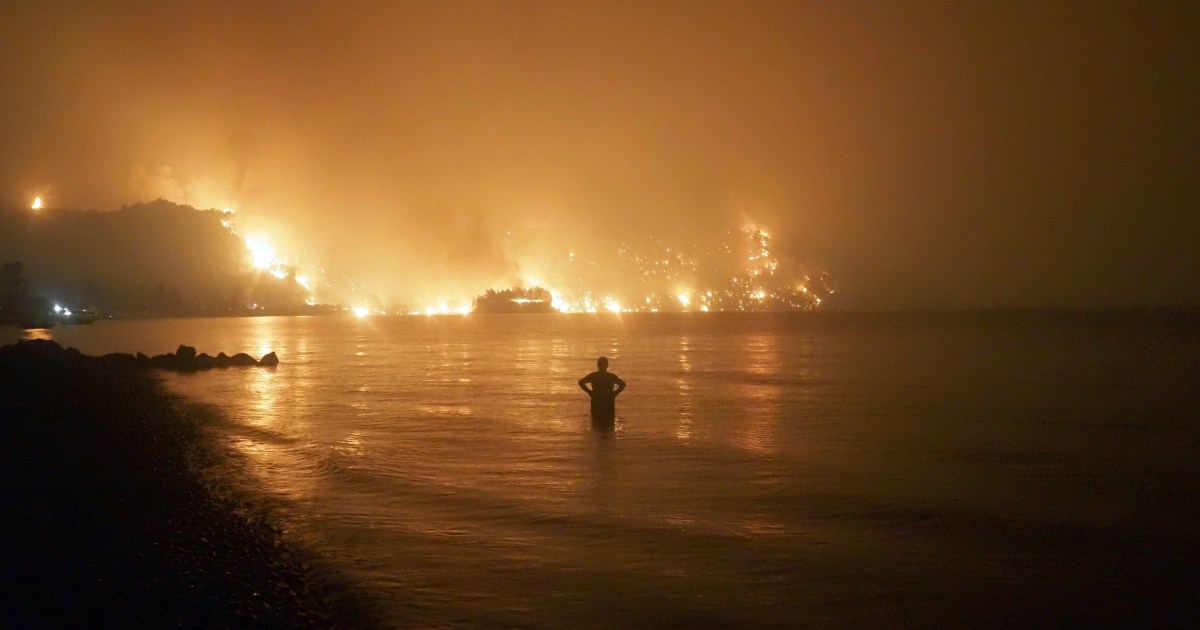Europe’s five hottest summers since 1500
Sweltering temperatures in Spain and France have shone a spotlight on the increasing frequency of heatwaves in Europe.
In just more than two decades, the continent has experienced its five hottest summers since 1500.
2021: Hottest ever
Last year was Europe’s hottest summer on record, according to the European climate change monitoring service Copernicus.
Between late July and early August 2021, Greece endured what Prime Minister Kyriakos Mitsotakis called the country’s worst heatwave in more than 30 years, with temperatures hitting 45 degrees Celsius (113 Fahrenheit) in some regions.
In Spain, temperatures reached 47C in parts of the south, according to national weather agency AEMET.
The heat and drought sparked large wildfires along the Mediterranean, from Turkey and Greece to Italy and Spain.

2019: Northern Europe swelters
The summer of 2019 brought two heatwaves, in late June and mid-July, which left about 2,500 people dead, according to the Centre for Research on the Epidemiology of Disasters at Belgium’s Louvain University.
In France, temperatures hit a record 46C on June 28 in the southern town of Verargues. Thousands of schools were closed.
On July 24 and 25, northern Europe fried in record heat. Temperatures of 42.6C were recorded at Lingen in northwestern Germany, 41.8C in Begijnendijk in northern Belgium, and 38.7C in the eastern English city of Cambridge.
2018: Drought drains the Danube
The second half of July and beginning of August 2018 saw very high temperatures across much of Europe and rivers running dry due to drought.
The Danube fell to its lowest level in 100 years in some areas, notably exposing World War II tanks in Serbia that had been submerged since the conflict.
Portugal and Spain suffered hugely destructive forest fires.
2017: Months of mugginess
Much of Europe, but especially the south, baked from late June to well into August.
Spain set a record of 47.3C on July 13 in the southern town of Montoro.
Persistent drought sparked forest fires in Portugal.

2015: Back-to-back heatwaves
It was heatwave after heatwave throughout the summer of 2015, which left an estimated 1,700 people dead in France.
In the UK, roads melted and trains were delayed in the hottest July on record, with temperatures reaching 36.7C at Heathrow airport.
2007: Greek forests ablaze
Central and southern Europe were parched by drought throughout June and July, provoking a spate of forest fires in Italy, North Macedonia and Serbia.
In Hungary, 500 people died as a result of the heat. In Greece, the worst fires in half a century – some believed to be the result of arson but others the product of heat and drought – consumed four percent of the country’s forests.

2003: 70,000 dead
The UK, France, Italy, Spain and Portugal all experienced exceptional heat in the first half of August, with Portugal suffering a record 47.3C at Amareleja in the south.
A European Union study of 16 nations puts the number of excess deaths across the bloc during that heatwave as high as 70,000, with France and Italy each seeing between 15,000 and 20,000 fatalities, according to various reports since.
In France, most of the victims were elderly people left to fend for themselves in an episode that traumatised the country and lead to the implementation of new systems to protect vulnerable people during heatwaves.




